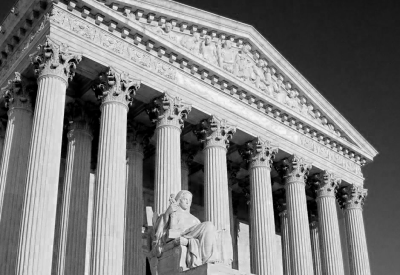Immigration Courts
Immigration courts play a crucial role in ensuring that immigration laws are applied fairly and consistently, providing due process to those facing removal. Learn more about issues facing the courts today and explore the actions we're taking to ensure the rights of immigrants are upheld and legal integrity is maintained.

U.S. Supreme Court Considers “Collateral Consequences” for Immigrants in Criminal Cases
Today, the U.S. Supreme Court heard arguments in a case posing the question: “If a criminal defense lawyer tells his or her client not to worry about the immigration consequences of pleading guilty, but that advice is wrong and in fact the client will be deported as a result of pleading guilty, can the client withdraw the plea?” In this case, Padilla v. Kentucky, the Supreme Court of the State of Kentucky said no: even incorrect advice about the immigration result is not a sufficient reason to reopen a case because deportation (now known officially as “removal”) from the U.S. is a “collateral” consequence—that is, not something directly related to the criminal case. Kentucky’s lawyer argued today that the High Court should uphold that decision. Read More

Supreme Court to Hear Two Cases Affecting Fair Process for Immigrants
Today, the United States Supreme Court opens its October session. Among the cases it will hear this term, two may have a significant effect on immigrants. The first case involves the intersection of the criminal justice system and immigration and the important role that lawyers play in safeguarding the rights of immigrants. The second case deals with immigrants’ access to federal court review—review which provides necessary oversight of government decision-making in immigration cases. These cases present the Supreme Court with opportunities to reaffirm that immigrants must be afforded fair process and a meaningful opportunity to be heard. Read More

Immigrants with Mental Disabilities Are Deprived Their Day in Court
The U.S. legal system is premised on the idea that every party in a case is afforded his or her day in court and a meaningful opportunity to be heard. Yet, for individuals with mental disabilities facing deportation from the United States—including those whose removal will mean being permanently barred from ever returning—that day may never arrive. Read More

The Rush to Limit Judicial Review
Access to an independent judiciary with the power to hold the government accountable in its dealings with individuals is a founding principle of the United States. In contrast, imagine a system where there is no access to independent judgment; where, instead, the referee works for the opposing team. The House of Representatives took a step away from this founding principle by passing the Border Protection, Antiterrorism, and Illegal Immigration Control Act (H.R. 4437) on December 16, 2005. A provision of the bill would erode access to independent judgment by severely restricting access to the federal courts for individuals in removal (deportation) proceedings. This provision is part of a long string of efforts by proponents of restrictive immigration policies to limit the jurisdiction of the federal courts over immigration cases. Read More

Crossing Borders Alone: The Treatment of Unaccompanied Children in the United States
Children who travel unaccompanied to the United States experience not only the trauma of family separation and the frequently predatory behavior of the traffickers who bring them, but also harsh treatment by an immigration bureaucracy that often incarcerates them with little access to legal counsel or professional support. Read More
Make a contribution
Make a direct impact on the lives of immigrants.
